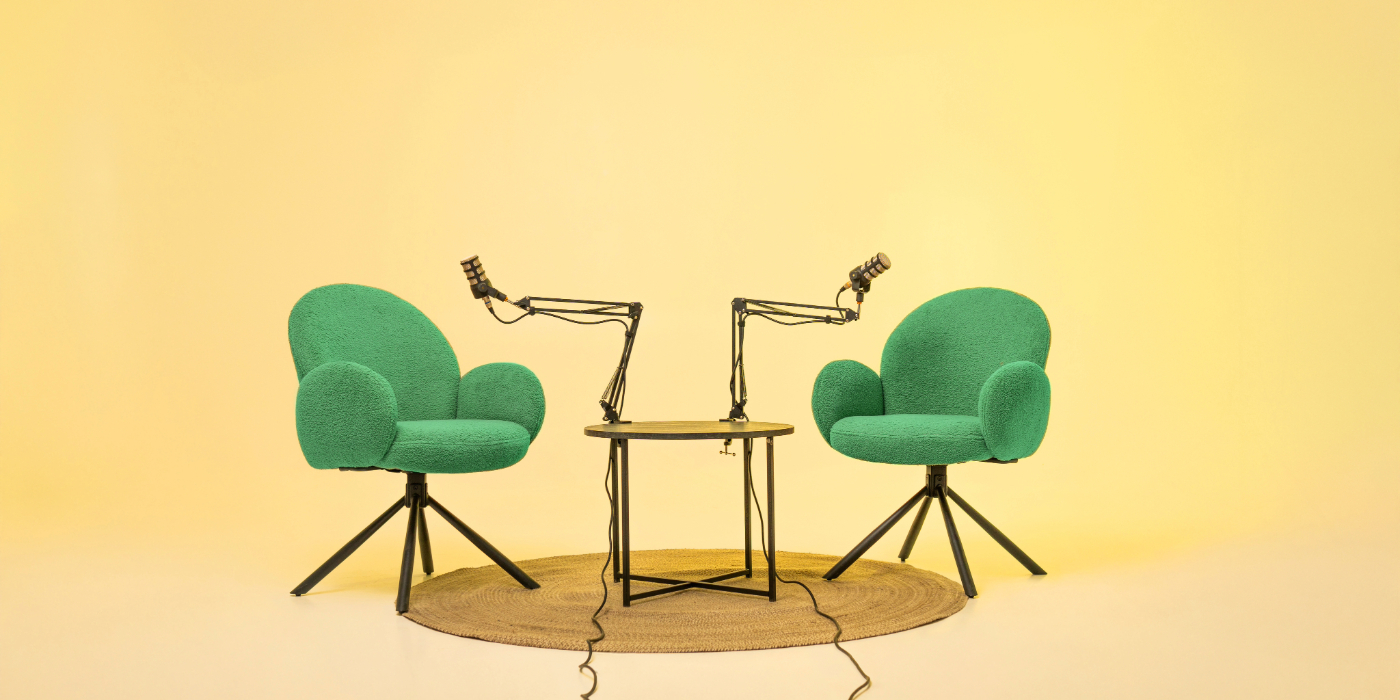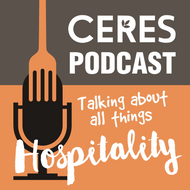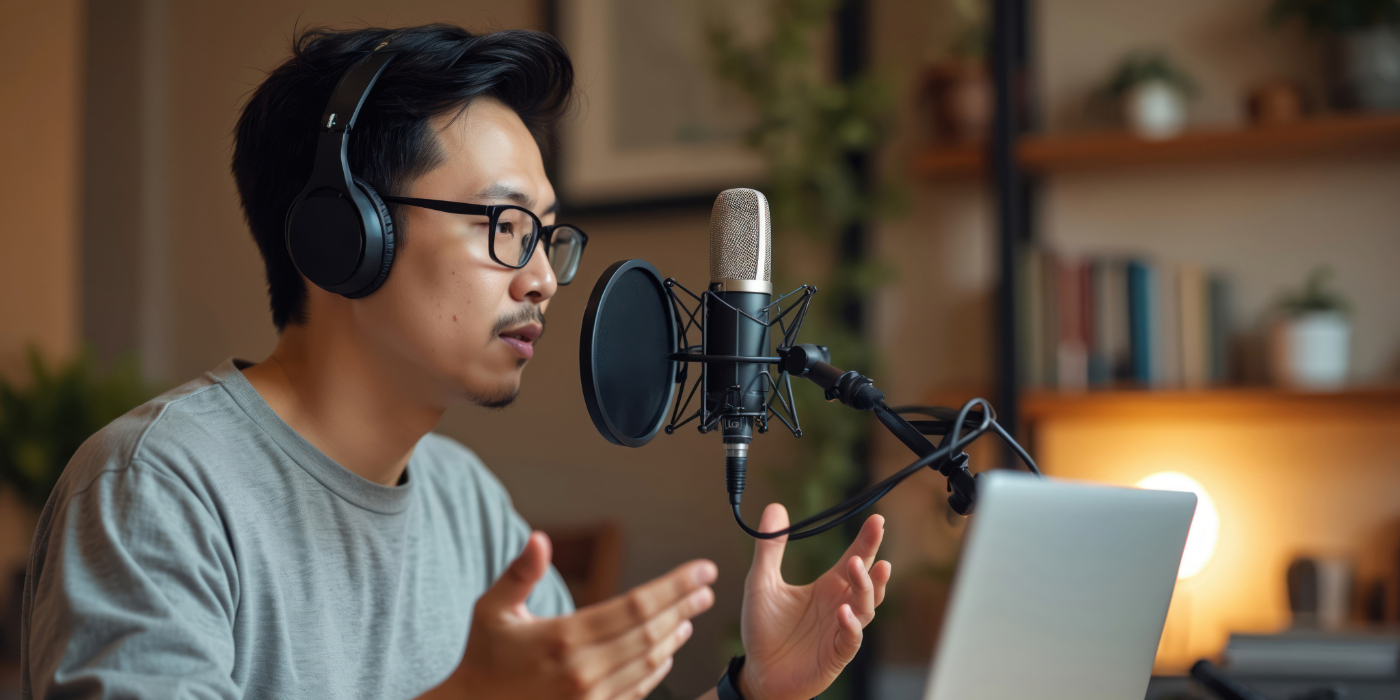How to Be a Great Podcast Guest
Posted by Stelios on 29th Nov 2018 Reading Time:
The art of interviewing is a popular topic, but what about the art of being interviewed? While the role may feel more passive, it's just as active as the interviewer's.
These tips for a memorable (in a good way) guest appearance will help you secure an invite back — and perhaps even lead to appearances on bigger and better shows in the future.
- Listen - Listen to at least two full episodes. You want to get a feel for the podcast and the host.
- Failure to prepare is preparing to fail - If the host sends over questions or topics before the interview, make sure you read them to have some thoughtful answers. But also let the host know what is essential to you, what you like, what you don't like, etc.
- Think about your words before the conversation - Most people use words like "um" and "like" or phrases such as "you know what I mean" quite a bit in their everyday talk. It's completely fine to do that on a podcast as well. But suppose you consciously think about eliminating it before the show. In that case, your sentence flow will likely sound much better. Not to mention, it will make editing a lot easier for the host.
- Bring the energy - If you agreed to come on the show, be excited to be there. A boring attitude makes it hard to have a lively, interesting conversation that will engage listeners. They will hear that you either do or do not want to be there.
- Engage with the host - This is especially true for shows like the Ceres Podcast, which is conversation-based. If the host has a little back and-forth or a bit of input in the conversation, feel free to play off of that. An interview doesn't have to be strictly you answering the question. Be open to being playful.

- Podcasts are built on great stories - Are there any fun stories in your life you think the guests would be interested in hearing? Feel free to parlay those into the conversation. Don't ever hesitate to share something like that. It can always be edited out post-production if it doesn't fit in the conversation. My bet is it will be an excellent addition to the discussion. What defining moments in your life do you want to include in the conversation? Be bold and confident about your story. We have asked you to come on the Ceres Podcast because we think you are interesting, OR you or your PR people have pitched you to be on our show because you think you are interesting.
- Share - This is one of the best ways new listeners find a show. And if they enjoyed your interview, the hope is they will come back for more to listen to other guests. I will never have a guest on my show just because they have a massive social media following, especially if I don't dig what they're going for. That being said, if you have highly engaging social media accounts, just by sharing the episode, you are helping the host so much. Let me get more specific here, though. Don't just RT the host's post about your episode. Put a personal post out on all of your social media platforms. (We will send you links and information for easy ways to share).
- Keep hydrated - Drink a glass of water 20-30 minutes before your interview, and be sure to have a beverage, such as water or tea, on hand while recording. Or wine, if you're recording after a particularly long day. You might even want to apply lip balm before recording. Dry mouths and lips tend to make "mouth sounds"- those sticky, clicking, smacking sounds that are irritating and unpleasant for listeners. Click mute before sipping so they can be prepared to cut out any unpleasant slurping sounds and refrain from snacking or eating while recording.
- Toilet break - Use the bathroom before you start recording.
- Think of it as a coffee date, not an interview - I've noticed that my best interviews are always the ones where both parties are fully engaged and invested in the conversation. The world disappears, and all focus is on you and your message. To get this effect, treat your recording session like it's a coffee date instead of an interview—not only will it help with nerves, but it will improve the quality of the conversation with focus and intimacy.
- Scribble - Feel free to take notes or doodle while you chat; I always find that I am more attentive and mindful when taking notes during a conversation. It helps me remember points I want to make, questions I want to circle back to and even the other person's name.
- Say my name - Podcasting is all about intimacy, authenticity and personal connection. Help foster these qualities and add a natural element to the chat by using each other's names. Establish before recording with your host what you would like to be called, whether it's an honorary title or simply your first name.
- Be sure of your facts - You'll probably have much information and detail to bring to a podcast, and it can be challenging to remember the specifics when put on the spot. So come armed with dates, facts and figures to add weight and credibility to your words.
If you are taking part in a read-the-news episode, you need to choose articles that interest you; we will discuss each article based on its morals, ethics, legality and what it poses for the industry or broader economy. You must understand each topic you have chosen and bring your personality and opinions to this recording. Remember, we're trying to discuss important issues but have a little fun in the process.



